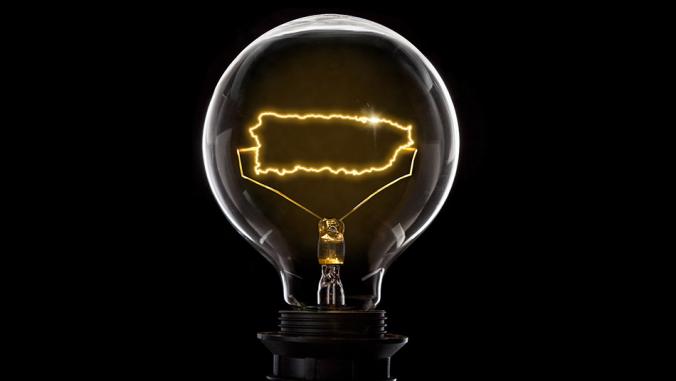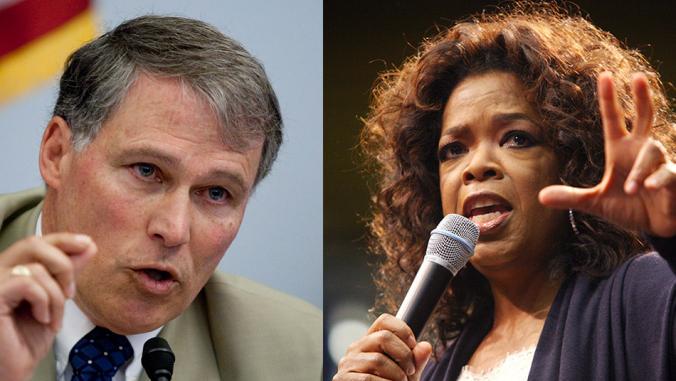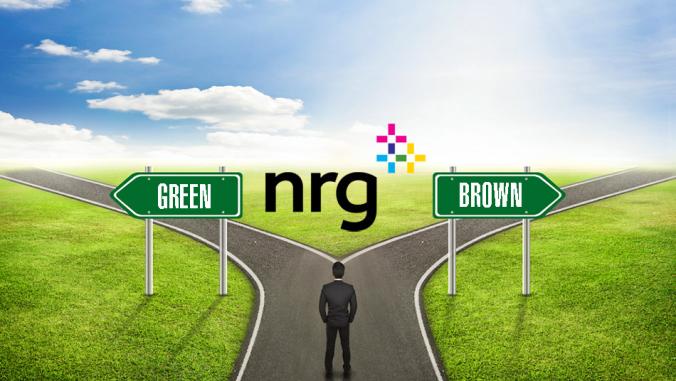My clean-energy green dream
What would you do if you had the power to do anything you want to fight climate change?

I was privileged to participate last week in the Corporate Eco Forum's annual confab — a remarkable event in which top sustainability professionals from our biggest and most forward-leaning corporations get together both to ideate and to speak practically about overcoming obstacles on the road to becoming carbon neutral.
This year's challenge to each participant was to ask themselves "What if?" I used my time there to answer the question: "If I could be anything and do anything I want right now to win the fight against climate change, what would it be?"
My answer: I would have the world's 100 largest corporations put me in charge of their collective energy procurement worldwide, with the mandate to make them all 100 percent carbon-free by 2025.
My thinking was that with the power to exercise their collective purchasing power, the changes we would bring about in the way energy is produced, transported, financed and consumed would be transformative. And in this political environment, the catalyst to transform the way we live can only be demand-driven.
The world's biggest companies, acting together, have a level of demand that can compel society down the road towards the clean energy economy.
As this is my green dream, I am not only going to assume that the world's 100 biggest companies, who represent roughly $15 trillion in market cap, will entrust in me their energy budget for the next eight years, but also that they are literally begging me to do it. They consider me the Mother Teresa of clean energy and, as such, I have the clout to dictate the terms of my procurement engagement.The world's biggest companies, acting together, have a level of demand that can compel society towards the clean energy economy.
I concede only one condition, which is that they will not spend more on energy in 2025, in real terms, than they did in 2017. In exchange, they agree to the following 10 conditions.
First, my procurement organization is not a club, alliance or association but an actual unified purchasing entity. The Global 100 assign to me its annual energy budget and I deliver physical energy to meet its needs which, by 2025, will be carbon neutral. It is very simple.
Second, I get to be responsible for all corporate energy procurement, not just electricity. I get to be responsible for transportation fuels as well. This is important because we will be able to optimize only if we can more fully integrate our two massive conventional energy delivery systems — electricity into buildings and gasoline into cars — into one system, thereby enabling the use of the latent secondary storage potential of battery-powered transportation as a partial remedy for the fundamental intermittency of renewables and, equally, using car charging as an energy sink for excess renewable energy at times when it is not needed for traditional uses.
While I am at it, I also want to talk to those of the Global 100, typically the beverage companies, which include in their long-term sustainability goals "fresh water neutrality," about helping them with desalinated fresh water produced at night by with excess wind power and during the midday duck's belly with excess solar.
Third is that I get to be responsible for energy management at the Global 100 so that I can implement large-scale energy-efficiency programs. It is nonsensical for me to be responsible for energy procurement, production and delivery but not for how energy is consumed. It would be like trying to pass off counterfeit $100 bills with Ben Franklin on one side and nothing on the other. It just won't work.
Fourth, I get unilateral discretion to decide when, where and how I roll out my 100 percent green procurement — company by company, technology by technology or country by country. Almost certainly I would choose country by country in an attempt to tap into the competitive dynamic between countries and their utility service territories.
Fifth is that, to the extent I could save money on the Global 100's energy procurement against their 2017 spend, I get to use a portion of that savings for a marketing/PR campaign on behalf of the Global 100. While this green dream of mine is innately collaborative, it is not naive. There will be laggards and recalcitrants. I need to have the ability to play into the competitive dynamic between companies: Coke versus Pepsi. McDonald's versus Wendy's. Marriott versus Hilton.
If one protagonist in a competitive sector is "all in" — doing the right thing by the planet — and the other is not, I want to let the customers they compete for know about it, particularly the millennials. I know for a fact that all CEOs are scared to death about getting on the wrong side of millennials.If one protagonist in a competitive sector is 'all in' — doing the right thing by the planet — and the other is not, I want to let the customers they compete for know, particularly millennials.
Sixth, I want to be able to pump a second portion of the savings we achieve into a dedicated venture capital or private equity fund to address energy poverty around the world with clean-energy solutions. Why, you ask? Because it is the right thing to do, and that is simply who we are as an industry.
Seventh, I get regular access to the C-suite of the Global 100, particularly their CFOs. Not only are the CFOs critical, because they are the de facto impediment to sustainability progress in most corporations, but because there will be a lot of financing associated with our global clean-energy build-out, and I will need the CFOs to play along on such ideas as collective offtake agreements.
Eighth, I will have to beg the CFOs' indulgence to play hardball with the financial institutions with which they do business. My message to the banks is that if you want to do business with the Global 100, you need to help finance our clean-energy build-out. Plus, I need competitive terms and I need innovation from lenders in terms of financing these new clean-energy facilities.
Specifically, given the pace of change in every one of the Global 100's core businesses, it is nonsensical for corporates to sign up for more than a 10-year power purchase agreement in any location. There needs to be a new financing solution to "the tail" risk. That risk should not, need not, be taken by the corporate off-takers.
My ninth and 10th conditions require the personal commitment of the Global 100 CEOs.
Ninth, I want the CEOs, individually and collectively, to sign on to a "no more excuses" pledge because, quite frankly, the planet has no more time for them. The fast-food chains that can't install solar because of the franchisees; the hotel management companies that say they are stymied by the actual hotel owners; the big-box store occupants who shrug their shoulders because they don't own the big boxes they occupy.
I could go on, but you get the point.
The pledge I want CEOs to make is simple. In short form, "If your brand name is on a building, a storefront or a box, you own its carbon footprint."The pledge I want CEOs to make is simple. In short form, 'If your brand name is on a building, a storefront or a box, you own its carbon footprint.'
If you thought that one was rough, wait for my final condition.
Tenth, as my mandate is to make the Global 100 carbon neutral by 2025, eight years into the future, more than 90 percent of the CEOs who launched this initiative in 2017 will be gone by then. I want the current Global 100 CEOs to pledge that to the extent they are involved in the orderly selection of their successors, that as a precondition to that selection they will insist that their successor reaffirms his or her commitment to our "carbon neutral by 2025" effort.
Those are the 10 conditions of my "what-if."
If we, the Global 100, reorder our own energy procurement so that it is carbon neutral, we will have done a lot. We truly will have moved the needle towards a clean-energy society. We will have reaffirmed our own core values. We will sleep better at night feeling good about ourselves.
But we won't have won the war against global warming. Energy consumption outside of the big corporate sector dwarfs that from within. We need our collective initiative to create a huge ripple effect.
If we successfully can leverage our collective purchasing power to get a country or a utility to go 100 percent carbon-free itself, then we truly are on the path to victory in the pivotal battle of our generation.
But how to do that is a green dream for another day.





